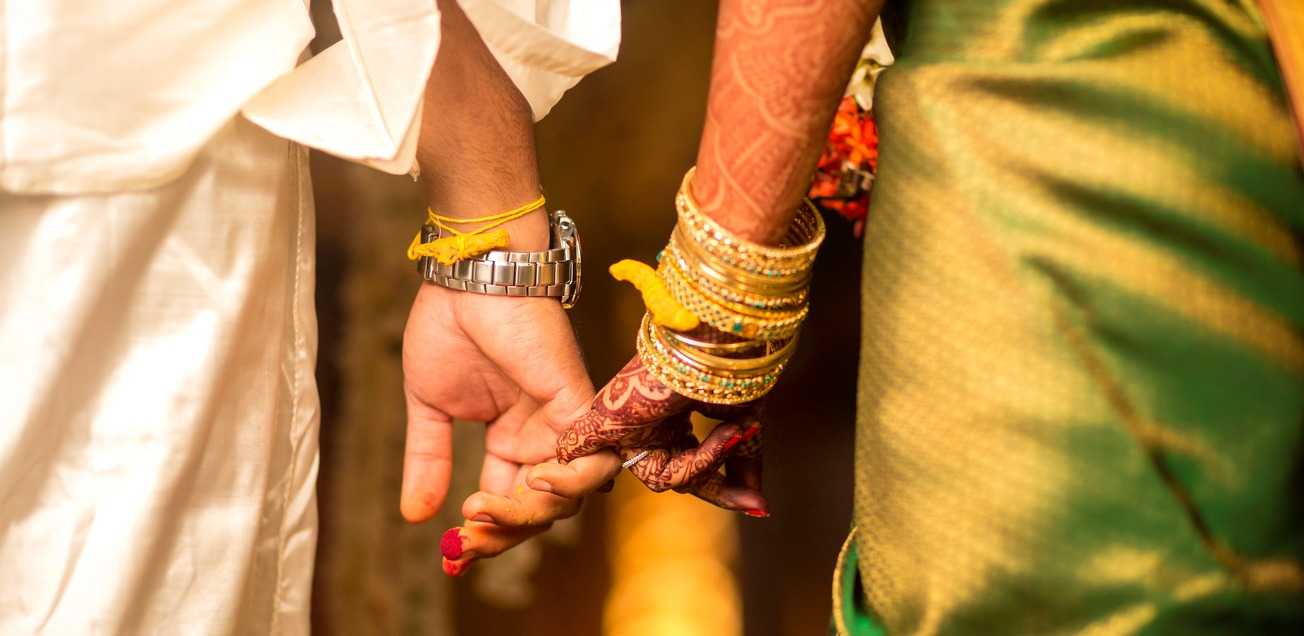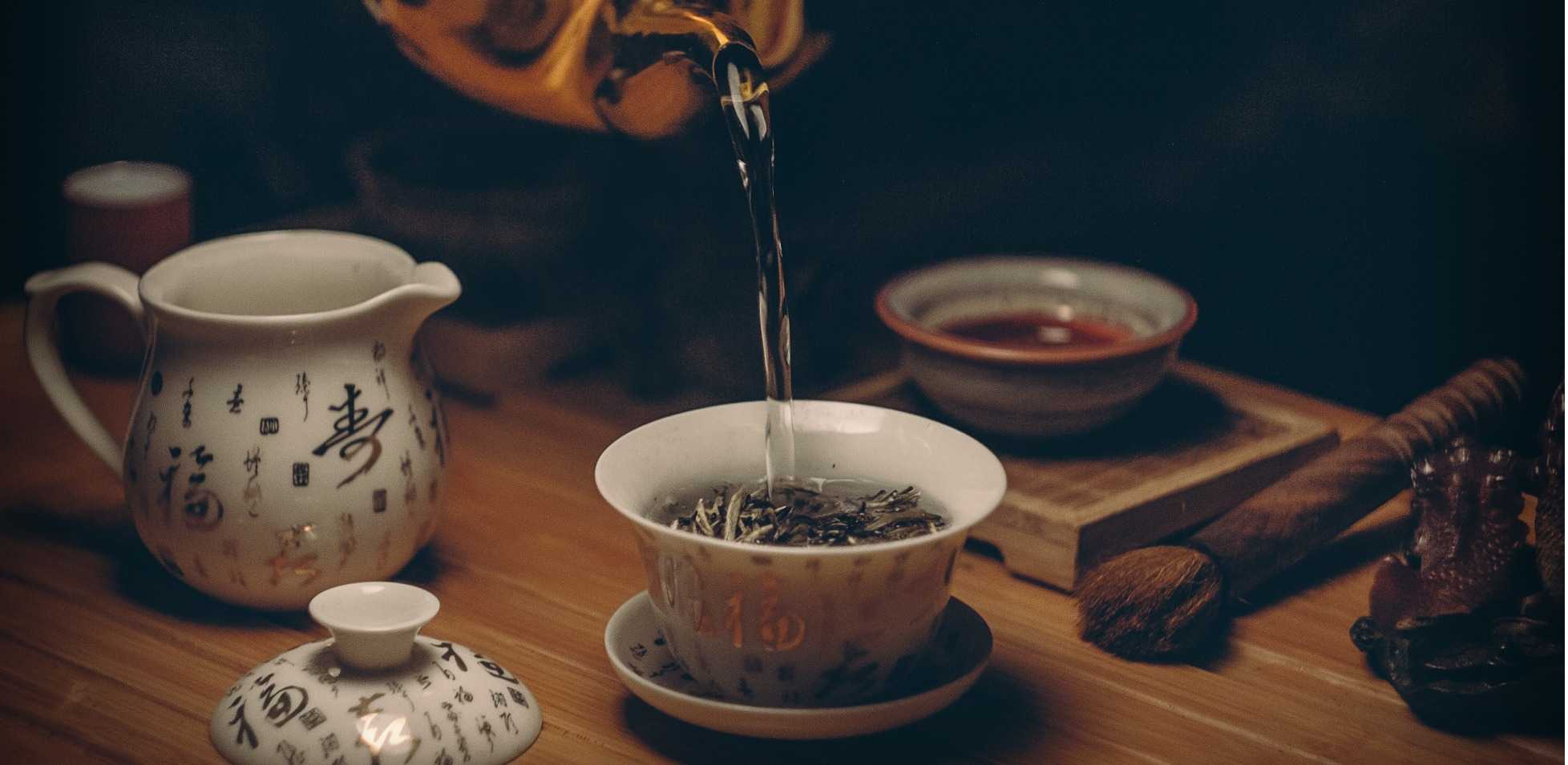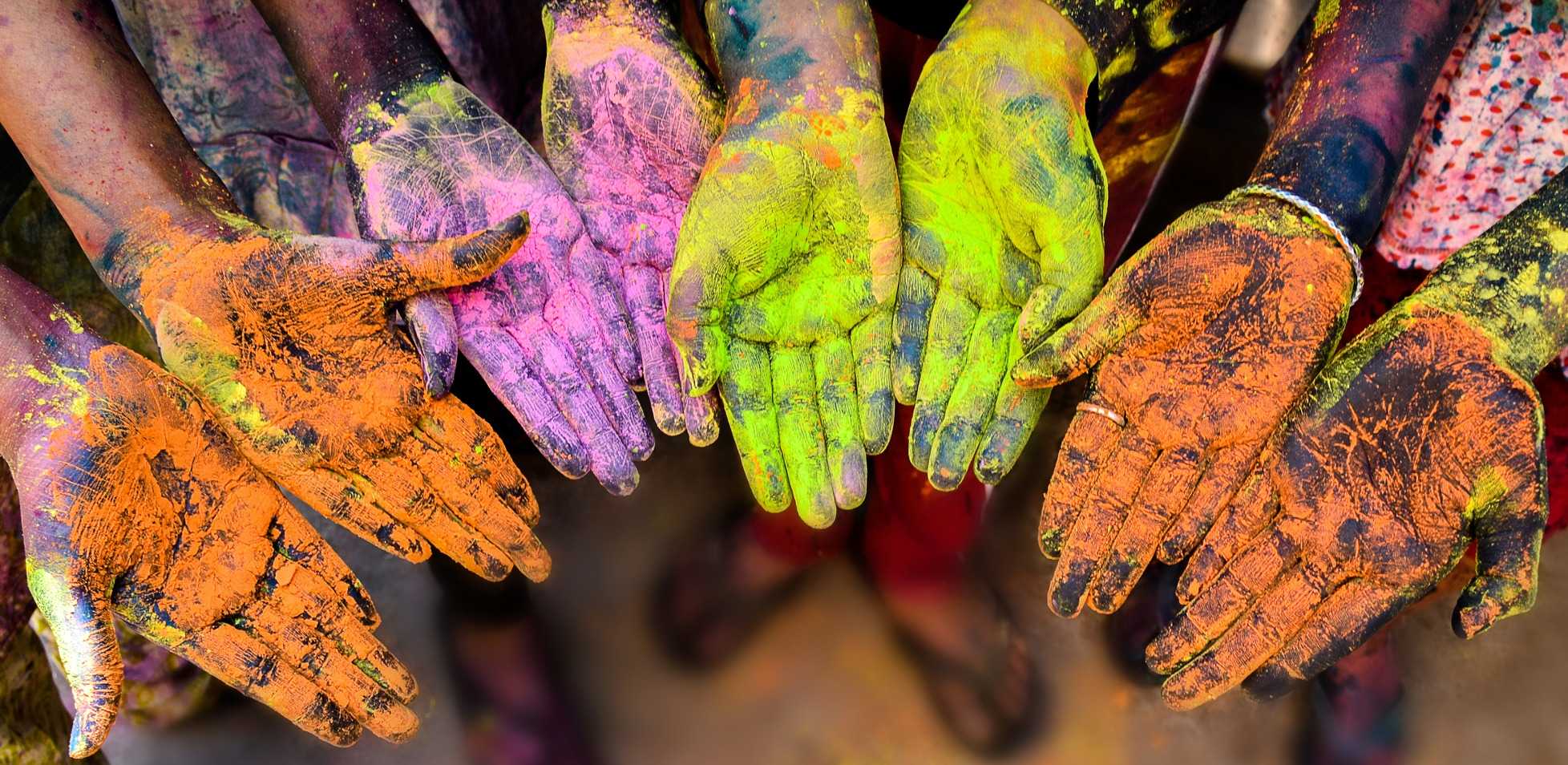Something Old, New, Borrowed and Blue: Weddings around the World
Whether you’re tying the knot abroad or your spouse-to-be has a different cultural background, an expat wedding means that you need to redefine your version of ‘traditional’. Whether it’s the dress or the ceremony itself, a wedding ceremony can bring cultural differences straight to the surface.

The wedding day is one of the biggest, most important days in many people’s lives and, as the stereotype goes, it’s the day every little girl dreams of her whole life. A wedding is one of the only ceremonies in the world that is globally celebrated, yet the way in which people tie the knot differs greatly all around the world.
Our article on wedding traditions around the world looks at a number of different traditions from countries all over the world. Should you decide to have an international wedding, it is well worth considering the traditional aspects. You never know, maybe you’ll fall in love with a new tradition.
Blacken the Bride: Are You Tough Enough?
In predominantly rural areas of Scotland, friends and family put the bride and groom to the test to make sure they’re ready for the challenges of marriage. Although the origins of this tradition are uncertain, it is thought to have originated in the early nineteenth century.
The bride and groom are “captured” by friends and family before being taken away to separate locations. There, they are covered in food, dirt and a variety of other (preferably sticky and smelly) substances, until their friends are satisfied that they’re up for the challenge of marriage.
Next, the couple are put in a trailer or open-backed truck —still covered in dirt — and paraded around their local town or village. During this parade, their captors make as much noise as possible with pots, pans and, of course, some shouting, just to make sure the messy couple doesn’t go unnoticed.
The rules of blackening the bride vary greatly depending on who you ask, but the idea behind it is that, if the soon-to-be married couple can handle the humiliation of being paraded around their town as messy and uncomfortable as they can possibly be, then they can handle anything — even marriage.
You Need Your Strength: La Soupe in a Chamber Pot?
The French are famous for their Haute Cuisine, but for the happy couple on their wedding night, it’s far from a 5-star meal. Traditionally, newlywed couples in France would be sent to the bridal suite while the bridal party cleaned up the mess downstairs. But they weren’t throwing out all the leftovers, instead they dumped all of the leftover food, food waste and drink into a chamber pot.
The bridal party would then make their way upstairs to the bridal suite and barge in, forcing the newlyweds to drink the unusual concoction, straight from the chamber pot! It wasn’t even as if the couple could refuse, as their friends and family wouldn’t leave the room until the “soup” was completely finished.
The idea behind this tradition is that it gives the bride and groom strength for their first night as a married couple. Nowadays, however, the soup traditionally made from leftovers is often replaced with melted chocolate or champagne — but the happy couple are still forced to drink it from a makeshift toilet bowl or chamber pot. The toilet bowl still isn’t appetizing, but I’d imagine most couples would take champagne or chocolate over a leftover soup any day of the week!
The Mystery of the Stolen Shoes
It is tradition in India for the groom to remove his shoes before entering the mandap (a temporary platform often used in Indian wedding ceremonies). However, when the groom does remove his shoes, the eldest unmarried girls on the bride’s side — normally her sisters, cousins and bridesmaids — steal the shoes of the groom as soon as he removes them, and they run away with the shoes in tow.
The girls must try and hide the shoes in a place that they know the groom and his family won’t be able to find them. After the shoes are hidden, the girls return to the ceremony with a very innocent look on their faces, acting as if they’ve done nothing wrong. As tradition goes, the groom must leave the mandap in the same shoes, and so, after the ceremony is over, the girls can ransom the shoes off to the groom.
How the shoes are ransomed is completely up to the girls who stole them, but they normally bargain. The groom giving the girls money in exchange for his shoes represents his promise to take care of the girls and treat them like he would his own sisters. This whole game is known as Joota Chupai and it is supposed to represent both sides of the family opening their hearts to each other, showing that they are ready for a lifetime of fun and laughter together.
Bride-napping: Prepare to Negotiate
In Romania, it is tradition for the bride to be “kidnapped” by a number of guests and taken to a secret location. The groom has to prove his devotion to his new wife by, first of all finding her, and then negotiating the terms of her release with her kidnappers.
This tradition is most common in Romania’s capital, Bucharest, and the bride is normally taken to a very public and popular tourist attraction, so that the rescuing by her husband is watched by many. The kidnappers negotiate in a very dramatic — but harmless — way, and the ransom is normally either a trolley full of alcohol, or a very public and over-the-top declaration of love by the groom.
Mock abductions of brides are traditionally a part of marriage ceremonies across many countries in Eastern Europe. The idea is to show how far the groom will go for his new wife and ransoms often include rather embarrassing dances or a spot of karaoke.
You (All) May Now Kiss the Bride
A typical tradition at a Swedish wedding is for all of the guests to get a kiss of the bride or groom. If the bride should leave the room at any point during her wedding day, it is tradition for all of the women in the room to kiss the groom — even if the bride has just popped out to use the bathroom.
The same goes for when the groom leaves the room — all the men in the room can line up to kiss the bride. The kiss is normally on the cheek and adds a bit of fun to the wedding day for all involved. It is also not uncommon for the best man to line up for a quick kiss with the groom!
This is definitely a unique tradition to say the least and is supposed to ensure everyone is involved at the wedding. It helps the bride get up close and personal with guests who are on the groom’s side, and vice versa.
The Bathroom Ban in Borneo
The Tidong people in Borneo abide by a tradition that is not to do with the wedding ceremony itself, but the honeymoon. The newlyweds are placed under house arrest for a full three days after their wedding. During this time they are guarded by friends and family and only given a small amount of food and drink. The bride and groom aren’t allowed to leave the house at all — not even to go to the bathroom.
Not following this ritual in Tidong culture is thought to bring bad luck to the bride and groom, often resulting in infidelity and the breakup of their marriage. The house arrest during their honeymoon is said to bring everlasting happiness to the marriage, as well as gracing the happy couple with many healthy and happy babies.
Smashing Dishes on Polterabend: A Messy Memory
In Germany, the happy couple are traditionally supposed to host an evening of destruction. The night before the happy couple says “I do”, the wedding guests traditionally gather at the bride’s house and bring something porcelain with them — whether it be crockery, tiles or toilet bowls.
Food and drink is often provided and the evening is turned into a sort-of pre-wedding celebration. This tradition isn’t as widely celebrated in Germany as it used to be and, nowadays, it is more common for the Polterabend to be celebrated in conjunction with the wedding ceremony itself.
Traditionally, after the guests have smashed the dishes, the happy couple must clean up the pile of shards together to prepare for a lifetime of working through difficult situations together. The tradition comes from the old German saying, “Scherben bringen Glück” (shards bring luck), and is supposed to bring the newlywed couple luck and happiness in their new marriage.
The above traditions are just a few of many celebrations from around the world that are said to bring a happy and healthy life to the newlywed couple. Whether you decide to stick to your home traditions, embrace a new culture, merge the two together or simply redefine tradition in your own way, planning and celebrating an expat marriage is bound to be an eye-opening and exciting journey.
Advertisement
About Laura Kernaghan
Laura Kernaghan is a language student from Northern Ireland, who has lived in Munich, Germany, working for InterNations as an intern in the Content & Communications Department.
Article topics
Related articles
Repatriation (and the Culture Shock that Comes with It)
Similar to culture shock, reverse culture shock is something which expats struggle with all over the world. But while it is just as difficult and scary to deal with, it is less talked about than culture shock. Find out what reverse culture shock is and how you can overcome it.
Unusual Christmas Traditions from around the World
Cultures from across the globe celebrate the holiday season in many different ways. Here’s a roundup of the most unusual Christmas traditions: from scary goat creatures to rollerblading parades to church, we cover everything from the weird to the downright nonsensical.
What’s Your Cup of Tea? — Tea Cultures around the World
In many countries, tea is much more than just a beverage. It’s often deeply connected with the culture and the people. The Japanese tea ceremony is about connecting on a spiritual level while in Morocco, tea is served as a sign of hospitality. Discover the different traditions around this hot beverage.
Halloween Celebrations & Traditions across the Globe
Halloween celebrations normally involve pumpkin-carving and children in spooky costumes trick-or-treating. We have found unique Halloween-like celebrations across the globe — from dressing human skulls to buffalo races, let’s have a look at different countries’ twists on the worldwide celebration!
These Festivals Are Guaranteed to Put a Spring in Your Step
Did you think you were done with holidays this season? Valentine’s Day has come and gone and Carnival may just be a foggy memory, but March offers plenty of celebrations of its own. We’ve found some of the finest from across the globe to see you through the next few months.




